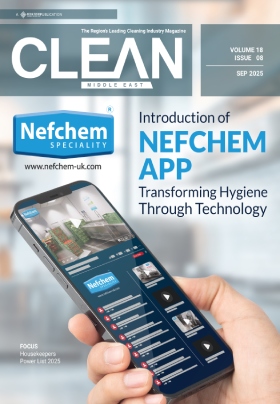
In today's competitive hospitality industry, personalized guest experiences have become a key differentiator for hotels and resorts. By tailoring services and interactions with individual preferences, establishments can create memorable stays that foster loyalty and positive word-of-mouth. Let's explore the importance of and strategies for delivering personalized guest experiences, along with some compelling statistics on guest satisfaction and future trends in personalization.
- Understanding Guest Preferences
The foundation of personalization lies in understanding guest preferences. This can be achieved through various means:
- Pre-Arrival Surveys: Sending surveys before guests arrive helps gather information about their preferences, special occasions, and any specific needs.
- Guest Profiles: Maintaining detailed profiles that include past stays, preferences, and feedback allows for a more tailored approach.
- Data Analytics: Leveraging data analytics to identify patterns and trends in guest behavior can provide valuable insights for personalization.
- Tailored Services and Amenities
Once preferences are understood, hotels can offer tailored services and amenities that enhance the guest experience:
- Room Customization: Personalizing room settings such as temperature, lighting, and even the type of pillows can make guests feel at home.
- Special Occasions: Celebrating birthdays, anniversaries, or other milestones with personalized touches like a complimentary cake or a special note can leave a lasting impression.
- Customized Recommendations: Offering personalized recommendations for dining, activities, and local attractions based on guest interests can enhance their stay.
- Technology and Personalization
Technology plays a crucial role in delivering personalized experiences:
- Mobile Apps: Hotel apps that allow guests to customize their stay, request services, and provide feedback in real-time can significantly enhance personalization.
- AI and Chatbots: Artificial intelligence and chatbots can provide instant, personalized responses to guest inquiries, making their stay more convenient.
- Smart Room Technology: Integrating smart technology in rooms, such as voice-activated assistants, can offer a seamless and personalized experience.
- Staff Training and Empowerment
Personalization is not just about technology; it's also about human touch:
- Training: Staff should be trained to recognize and act on opportunities for personalization, from remembering guest names to noting preferences.
- Empowerment: Empowering staff to make decisions that enhance guest experiences can lead to more spontaneous and meaningful interactions.
- Measuring Success
To ensure the effectiveness of personalized guest experiences, it's important to measure success:
- Guest Feedback: Regularly collecting and analyzing guest feedback helps identify areas for improvement and measure satisfaction.
- Loyalty Programs: Tracking the success of loyalty programs can provide insights into how personalization impacts guest retention.
- Performance Metrics: Monitoring key performance metrics such as repeat bookings and positive reviews can indicate the success of personalization efforts.
- Statistics on Guest Satisfaction
High Satisfaction with Staff Service: According to the J.D. Power 2023 North America Hotel Guest Satisfaction Index (NAGSI) Study, overall satisfaction with hotel staff is 701 on a 1,000-point scale, making it the highest-scoring factor
Impact of Positive Experiences: 81% of customers say a positive customer service experience increases the chances of them making another purchase
- Value for Price: Guests who rate the value for price paid of their guest room as excellent or perfect have an overall satisfaction score 302 points higher than those who do not
- Loyalty and Retention: 97% of consumers and 98% of contact center managers say customer service interactions impact whether consumers stay loyal to a brand
- Future Trends in Personalization
As technology continues to evolve, several trends are shaping the future of personalized guest experiences:
- Hyper-Personalization: Leveraging advanced technologies like AI, machine learning, and big data analytics, hyper-personalization goes beyond traditional methods to create highly targeted and customized interactions at an individual level. This includes real-time adjustments based on immediate context, such as location, device type, and even weather
- Facial Recognition: This technology can enhance the customer journey by recognizing returning guests and instantly adapting their experience. In physical stores, it can recall past purchases or preferences, allowing staff to offer tailored recommendations without additional information
- Real-Time Personalization: The ability to adjust experiences in real-time based on user behavior and context is becoming increasingly important. This might involve changing website layouts, content, or offers based on the user's current situation
- Omnichannel Personalization: Ensuring a consistent and seamless personalized experience across all touchpoints, whether online or offline, is crucial. This approach integrates data from various channels to provide a unified and cohesive experience
- Privacy-First Personalization: With growing concerns about data privacy, future personalization efforts will need to prioritize user consent and data protection. This involves transparent data practices and giving users control over their personal information
Conclusion
Personalized guest experiences are no longer a luxury but a necessity in the hospitality industry. By understanding guest preferences, leveraging technology, training staff, and continuously measuring success, hotels can create memorable stays that foster loyalty and positive word-of-mouth. In a world where guests seek unique and tailored experiences, personalization is the key to standing out and ensuring long-term success.


 (1).jpg)
.jpg)
 Search
Search.jpg)
